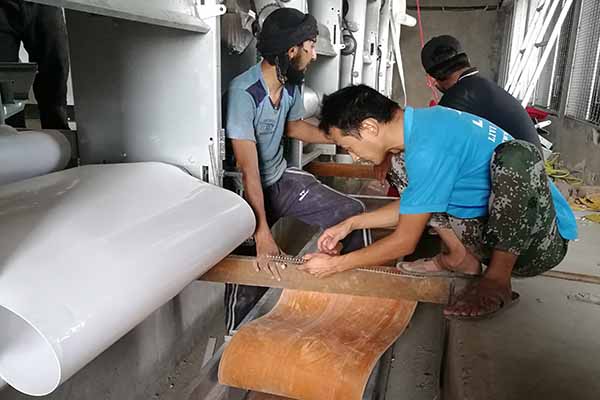How to Reduce Mortality in Tanzania Chicken Farms
Time : 2025-04-23
As an avid poultry farmer and a seasoned expert in the industry, I’ve seen my fair share of challenges. One of the most pressing issues, particularly in Tanzania, is the high mortality rate in chicken farms. It’s not uncommon for farmers to lose up to 20% of their flock due to various factors. But fear not, because in this article, I’ll share some practical tips on how to reduce mortality in your Tanzania chicken farm. So, let’s get down to business and keep those chickens alive!
Understanding the Causes of Mortality
First things first, let’s dive into the reasons behind the high mortality rate. Here are some common causes:
1. Poor Hygiene: A dirty environment is a breeding ground for bacteria and parasites.
2. Unbalanced Diet: Undernutrition or overnutrition can weaken the immune system.
3. Disease: Viral, bacterial, or parasitic infections can spread rapidly in close quarters.
4. Environmental Stress: Extreme temperatures, inadequate ventilation, and crowding can stress the birds.
5. Mold and Pests: Contaminated feed and water sources can lead to illness.
Implementing Hygiene Practices
Maintaining a clean environment is key to reducing mortality. Here’s how you can do it:
– Regular Cleaning: Clean the coops daily with a disinfectant. Pay special attention to feeding and watering areas.
– Disinfection: After cleaning, disinfect the coops using a solution like chlorine or iodophor.
– Change Feed and Water Trays: Replace feed and water trays daily to prevent contamination.
– Sanitize Yourself: Always wash your hands and change into clean clothes before entering the coop.
Balancing the Diet
A well-balanced diet is crucial for healthy chickens. Consider the following:
– High-Quality Feed: Use feed that is specifically formulated for chickens. Avoid buying low-quality or expired feed.
– Proper Feeding Times: Provide feed at regular intervals. Avoid overfeeding, as it can lead to obesity and health issues.
– Supplements: Include vitamins and minerals in the diet to strengthen the immune system.
Preventing Disease
Disease prevention is better than cure. Here’s what you can do:
– Vaccination: Administer vaccines to protect your chickens against common diseases.
– Early Detection: Regularly check for signs of illness and isolate sick birds immediately.
– Biosecurity Measures: Implement biosecurity measures like limiting the number of visitors, controlling pests, and preventing the entry of wild birds.
Managing Environmental Stress
Chickens are sensitive to their environment. Here’s how to keep them comfortable:
– Ventilation: Ensure the coops are well-ventilated to maintain a stable temperature and prevent ammonia buildup.
– Temperature Control: Keep the coops at an optimal temperature (around 70-75°F for broilers). Use heating or cooling systems if necessary.
– Space Allocation: Provide enough space for each bird to move around comfortably.
Dealing with Mold and Pests
Mold and pests can be detrimental to your flock. Here’s how to tackle them:
– Dry Conditions: Keep the coops dry and well-ventilated to prevent mold growth.
– Pest Control: Use natural or chemical pest control methods to eliminate pests.
– Regular Checks: Inspect the coops regularly for signs of mold or pest infestation.
Monitoring and Records
Lastly, monitoring your flock and keeping detailed records can help you identify and address issues early on:
– Regular Check-ups: Conduct regular health checks to detect any abnormalities.
– Record Keeping: Maintain a record of vaccination schedules, feed consumption, and any diseases or deaths.
Conclusion
Reducing mortality in Tanzania chicken farms is not rocket science, but it does require dedication and attention to detail. By implementing these practical tips, you can create a healthier environment for your chickens, leading to a more productive farm. So, don’t wait any longer – start making changes today and watch your chicken farm thrive!
Tags












